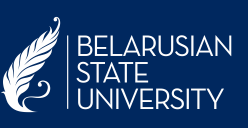
 |
Ïåäàãîãèêà èíôîðìàòèêè |
PEDAGOGY OF COMPUTER SCIENCE |
ISSN 2708-4124 |
|
SKILL TRAINING FOR THE DIGITAL ERA: MODERN LANDSCAPE D.A. Bogdanova FULL TEXT: PDF (Rus) Abstract Modern children grow up surrounded by the Internet, perceiving it as a natural habitat that does not carry any threat. Indeed, the Internet provides access to information, but this opportunity is often used for plagiarism, illegal downloading, sharing music and software. And in a social context, the Internet allows you to communicate with peers and strangers, participate in various online communities and interact with local and more remote communities. These communities often have their own rules, their etiquette and social agreements.
Key words Internet safety, media literacy, information safety, digital citizenship, digital intelligence, digital etiquette, digital law, digital identity, digital emotional intelligence, digital competitiveness, digital communication. Received: 04/29/2020; accepted for publication: 05/12/2020. For citation: ________________________________________ Bogdanova D.A. Skill training for the digital era: modern landscape. Electronic scientific and methodological journal “Pedagogy of computer science”. 2020;2. Http://pcs.bsu.by/2020_2/1ru.pdf Content is available under license Creative Commons Attribution-NonCommercial-ShareAlike 4.0 International License. About the authors:
References 1. Parents’ rising concern over children online. Ofcom.2020; February, 04. [Electronic resource]. Available at: https://www.ofcom.org.uk/about-ofcom/latest/media/media-releases/2020/rising-concern-over-children-online (date of access: 29.04.2020). 2. DetskiyRunet 2019. Otraslevoydoklad [Children's Runet 2019. Brunch report]. InstitutissledovaniyInterneta [Institute for Internet Research]. 2020. Match. [Electronic resource]. Available at: https://internetinstitute.ru/wp-content/uploads/2020/03/ChildRunet-2019-26032020.pdf (date of access: 29.04.2020). (In Russian). 3. Bogdanova D.A. Informatsionnyyetekhnologiiiobrazovaniye v Yevrosoyuze: formirovaniyenovykhprofessionalov [Information technology in the European union: the status quo and prospects]. Sistemyisredstvainformatiki [Systems and Means of Informatics]. 2016;26(2):171-180. (In Russian). 4. Ribble M. S., Bailey G. D., Ross T. W. Digital Sitizenship. Addressing appropriate technology behavior. ISTE.2004; September. [Electronic resource]. Available at: https://files.eric.ed.gov/fulltext/EJ695788.pdf (date of access: 29.04.2020). 5. Bogdanova D.A., Burkatovskaya G.R. Otklassifikatsii Internet riskov – k kontseptsiitsifrovogograzhdanstva [From Internet Risk Classification to Digital Citizenship Education]. Narodnoyeobrazovaniye [Public Education]. 2017;(8):147–153. (In Russian). 6. M.Ribble, D. Bailey Digital citizenship in schools. ISTE. 2007. 149p. 7. Digital citizenship in education. ISTE. [Electronic resource]. Available at: https://www.iste.org/learn/digital-citizenship (date of access: 29.04.2020). 8. Bennett W. L. Changing Citizenship in the Digital Age. OECD/INDIRE conference on Millennial Learners. Florence. 2007. March, 5-6. [Electronic resource]. Available at: http://www.oecd.org/education/ceri/38360794.pdf (date of access: 29.04.2020). 9. Livingstone S. The participation paradigm in audience research. The Communication Review. 2013;16(1-2):21–30. 10. Ribble M., Park M. Digital Citizenship Framework Updated. Tech & Learning. 2019; May, 01. [Electronic resource]. Available at: https://www.techlearning.com/resources/digital-citizenship-framework-updated (date of access: 29.04.2020). 11. Bogdanova D., Berezina N. Opytformirovaniyatsifrovoi? imediagramotnosti: naputi k tsifrovomugrazhdanstvu [The experience of digital and media literacy: on the path to digital citizenship]. Konferentsiya IITE2014. Moskva [IITE2014 Conference, Moscow]. 2014. October, 14-15. (In Russian). 12. Carretero S., Vuorikari R., Punie Y. DigComp 2.1 The Digital Competence Framework for Citizens. Luxembourg: Publications Office of the European Union. 2017. [Electronic resource]. Available at: https://publications.jrc.ec.europa.eu/ repository/bitstream/JRC106281/web-digcomp2.1pdf_(online).pdf (date of access: 29.04.2020). 13. DQ Institute. Leading Digital Education, Culture and Innovation. [Electronic resource]. Available at: https://www.dqinstitute.org/ (date of access: 29.04.2020). 14. What is DQ (Digital Intelligence)? [Electronic resource]. Available at: https://www.dqinstitute.org/dq-framework/#digital_intelligence (date of access: 29.04.2020). 15. Common Framework for Digital Literacy, Skills and Readiness. DQ Global Standards Report. 2019. [Electronic resource]. Available at: https://www.dqinstitute.org/wp-content/uploads/2019/03/DQGlobalStandardsReport2019.pdf (date of access: 29.04.2020). 16. Cortesi S., Hasse A., Lombana-Bermudez A., Kim S., Gasser U. Youth and Digital Citizenship+ (Plus): Understanding Skills for a Digital World. Berkman Klein Center for Internet & Society. 2020. 17. SaytMinisterstvaprosveshcheniyaRossiyskoyFederatsii [The ministry of education of the Russian Federation site]. [Electronic resource]. Available at:. https://edu.gov.ru/press/2114/sergey-kravcov-rassmotrel-predlozheniya-po-uluchsheniyu-programm-obzh-v-shkolah/ (date of access: 29.04.2020). (In Russian). |